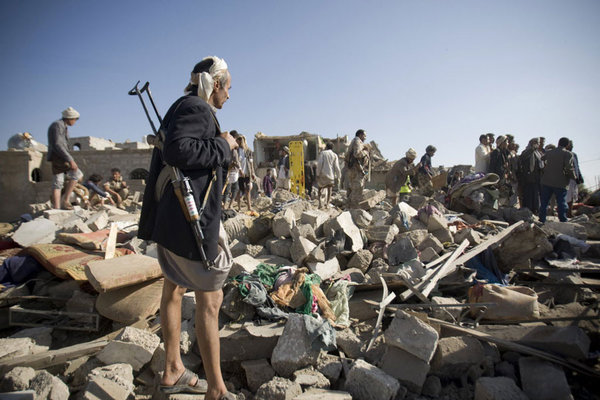Forces loyal to Saudi-backed President Abrabbuh Mansur Hadi have seized the coastal town of Al-Mokha in Yemen, according to a report by Reuters. The action represents progress for the embattled president and his Gulf Arab allies as the civil war with regional and global implications approaches its second anniversary.
Following the Iranian-backed Houthi offensive to oust Hadi from power in 2014, the civil war in Yemen has become a classic regional proxy war between Saudi Arabia, Iran, and to a lesser extent the United States and other western nations.
To further complicate the issue, ISIS and Al-Qaeda in the Arabian Peninsula (AQAP) have capitalized off the chaos throughout the country to establish legitimate footholds in the ungoverned stretches of land throughout Yemen.
Yemen has consistently topped the global lists for poverty and humanitarian crises for decades. The country has endured political chaos in its recent history as Sunni and Shia governing parties, each controlling significant areas of the country and population centers, have clashed over writing a new constitution and political system.
Events related to the Arab Spring in 2011 eventually led to Yemen’s 30-year ruler, Ali Abdullah Saleh, relinquishing his presidency. The combination of political upheaval, economic catastrophe, and foreign influence all set the conditions for the ongoing civil war which began in 2014.
After seeing significant success on the battlefield, the Houthi-led uprising was halted before capturing Aden, Yemen’s de facto capital, by the Saudi-led coalition, which includes contingents from Kuwait, Qatar, the United Arab Emirates, Egypt, Bahrain, Morocco, Jordan, Sudan, and Senegal.
Since foreign involvement began in earnest in 2015, the war has more or less reached a stalemate. In the process, thousands of Yemeni civilians have been killed and millions have been displaced. In a country already rocked by significant economic troubles, the continuing war has dealt massive damage to Yemen’s population.
The United States has already accused Iran of supporting the Houthi insurgency, citing weapons seized in the Arabian Sea in 2016.
In October 2016, a U.S. Navy destroyer was fired upon by Houthi rebels along the Red Sea coast, which would fit with Iran’s historical precedent of engaging the U.S. through proxies, as it did in Iraq at the height of U.S. involvement.
The U.S. has already admitted to staging troops in Yemen, another aspect of the war complicated by a Yemeni decision to limit U.S. special operations forces from the country following a recent raid on AQAP which left many civilians dead.
Image Courtesy of Associated Press
Already have an account? Sign In
Two ways to continue to read this article.
Subscribe
$1.99
every 4 weeks
- Unlimited access to all articles
- Support independent journalism
- Ad-free reading experience
Subscribe Now
Recurring Monthly. Cancel Anytime.











COMMENTS